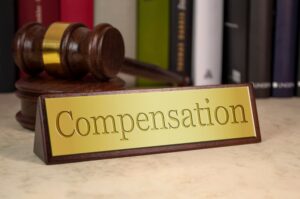Motorcycle accidents frequently happen when other drivers behave negligently at the wheel. When victims of motorcycle crashes suffer injuries in these circumstances, they may be eligible to file a claim with the at-fault driver’s insurance company – or a lawsuit against the at-fault driver. This is when it’s best to speak with a knowledgeable motorcycle accident attorney to understand the timeframe for filing a claim.
The amount of time it takes to litigate a motorcycle accident case depends upon various circumstances. These include the jurisdiction where the accident happened, the willingness of the parties to settle, and the amount of time it takes the injured motorcyclist to complete their medical treatment.
An experienced motorcycle accident lawyer will work to expedite the process and resolve the case as quickly and efficiently as possible.
Common Injuries in Motorcycle Crashes
 Motorcycle crashes often result in serious injuries. Unlike cars, motorcycles offer little protection to riders, making them more vulnerable to severe harm. Here are some of the most common injuries that victims may suffer in these accidents:
Motorcycle crashes often result in serious injuries. Unlike cars, motorcycles offer little protection to riders, making them more vulnerable to severe harm. Here are some of the most common injuries that victims may suffer in these accidents:
- Head and Brain Injuries – Head injuries are one of the most dangerous outcomes of a motorcycle collision. Even with a helmet, riders can still experience traumatic brain injuries (TBIs), such as concussions and other severe brain damage. These injuries can have long-lasting effects on cognitive abilities, memory, and overall brain function.
- Road Rash – When motorcyclists are thrown from their bikes and slide across the pavement, they can suffer from road rash. Road rash occurs when the skin scrapes against the ground, causing cuts, bruises, and burns. Severe road rash can lead to nerve damage and require skin grafts.
- Fractures and Broken Bones – Motorcycle crashes often result in broken bones, especially in the arms, legs, and ribs. Because the rider’s body is exposed, bones can easily break on impact with the ground, another vehicle, or an object. Leg injuries are particularly common as the legs often hit the ground first during a fall.
- Spinal Cord Injuries – A spinal cord injury can be life-changing. When the spine is damaged in a motorcycle accident, it can lead to partial or full paralysis. Injuries, such as slipped discs or fractures, can cause chronic pain and mobility issues.
- Internal Injuries – Motorcycle collisions can also lead to internal injuries, which may not be immediately visible. Damage to organs such as the lungs, liver, or spleen can be life-threatening. Internal bleeding is another serious risk and requires immediate medical attention.
- Emotional Trauma – In addition to physical injuries, motorcycle accident victims often suffer from emotional trauma. The sudden, violent nature of these accidents can lead to conditions like post-traumatic stress disorder (PTSD), anxiety, and depression.
Victims of motorcycle crashes resulting from another driver’s negligence may face long recovery times and significant medical expenses. An experienced motorcycle accident attorney can pursue the compensation necessary to cover these costs and help victims get their lives back on track.
How Do Motorcycle Collisions Typically Happen?
 Negligence by other drivers is a leading cause of motorcycle collisions. Due to the small size and maneuverability of motorcycles, drivers who are careless or inattentive can easily cause serious crashes. Here are several ways negligence can lead to motorcycle accidents, as well as the specific types of accidents that may occur:
Negligence by other drivers is a leading cause of motorcycle collisions. Due to the small size and maneuverability of motorcycles, drivers who are careless or inattentive can easily cause serious crashes. Here are several ways negligence can lead to motorcycle accidents, as well as the specific types of accidents that may occur:
- Failure to Yield – One common form of negligence is when drivers fail to yield the right-of-way to motorcyclists. Failing to yield often happens at intersections when a car turns left in front of an oncoming motorcycle. The driver may not see the motorcyclist or underestimate their speed, leading to a left-turn accident, where the motorcyclist collides with the turning vehicle, often resulting in serious injuries.
- Distracted Driving – Distracted driving is another major cause of motorcycle accidents. Drivers who are texting, eating, or otherwise not paying attention may not notice motorcycles around them. A rear-end collision can happen when a distracted driver fails to stop in time and hits a motorcyclist from behind. Due to the impact, even low-speed crashes can throw the rider off their bike and cause serious harm.
- Lane Changes Without Checking Blind Spots – Motorcycles are smaller and can easily be hidden in a car’s blind spot. When drivers fail to properly check their mirrors and blind spots before changing lanes, they can sideswipe a motorcycle. This type of accident, called a side-impact collision, often causes the motorcyclist to lose control and crash.
- Speeding and Reckless Driving – Drivers who speed or drive recklessly can easily cause accidents with motorcyclists. When a car is going too fast, the driver may not have enough time to react to a motorcycle in front of them. This negligence often results in a T-bone accident, where the car hits the motorcycle from the side, often at an intersection.
- Drunk or Impaired Driving – Driving while under the influence of drugs or alcohol impairs judgment, reaction time, and vision. Drunk drivers may not see a motorcycle or may misjudge its distance, leading to head-on collisions or other dangerous crashes.
What Happens During Motorcycle Accident Litigation?
 When a motorcycle accident case enters litigation, the process begins with filing a lawsuit in the court system. Litigation results when settlement negotiations with the insurance company fail or when the responsible party denies fault. The following is an overview of what happens during motorcycle accident litigation:
When a motorcycle accident case enters litigation, the process begins with filing a lawsuit in the court system. Litigation results when settlement negotiations with the insurance company fail or when the responsible party denies fault. The following is an overview of what happens during motorcycle accident litigation:
- Filing the Lawsuit – The first step is for the injured party (plaintiff) to file a complaint in civil court. This legal document outlines the details of the accident, the injuries sustained, and the compensation being sought. The complaint is then served to the defendant, who is the person or entity being sued. After receiving the complaint, the defendant must file a response, typically denying liability.
- Discovery Process – Once the lawsuit is filed, both sides enter a phase called discovery. During this stage, each party exchanges evidence and gathers information to build their case, including documents like medical records, accident reports, and insurance policies. Depositions also occur during discovery, when the opposing party’s attorney questions witnesses, the plaintiff, and the defendant under oath. This process can take several months, depending on the complexity of the case and the amount of information being requested.
- Pre-Trial Motions and Negotiations – Before the case goes to trial, either party may file pre-trial motions. These motions can request the court to dismiss the case, exclude certain evidence, or even ask for a summary judgment, where the judge rules in favor of one party based on the available evidence. At this stage, many motorcycle accident cases are still being negotiated. The majority of cases settle before reaching trial, as both parties may prefer to avoid the cost and uncertainty of a court battle.
- Trial – If the parties reach no settlement, the case proceeds to trial. During the trial, both sides present their arguments, evidence, and witnesses. The judge or jury then decides whether the defendant is liable and, if so, how much compensation the plaintiff should receive. Trials can take anywhere from a few days to several weeks, depending on the case’s complexity.
- Verdict and Appeals – Following the trial, the judge or jury delivers a verdict. If either party disagrees with the outcome, they may file an appeal, extending the litigation process.
Motorcycle accident litigation can be a lengthy and complicated process, but it is often necessary when fair compensation is not available through settlement negotiations.
Factors That Determine the Length of a Motorcycle Accident Lawsuit
The length of a motorcycle accident lawsuit can vary greatly depending on several factors. These cases can take anywhere from a few months to several years to resolve, depending on the complexity of the situation. Here are some of the key factors that determine how long a motorcycle accident lawsuit may take:
- Severity of Injuries – The extent of the injuries suffered in a motorcycle crash can play a major role in how long a lawsuit takes. If the injuries are severe, the victim may need months or even years of medical treatment before the full extent of damages can be determined. It is important to wait until the victim has reached “maximum medical improvement” (MMI), meaning their condition is as good as it will get, before settling the case.
- Gathering Evidence – Collecting evidence is vital in motorcycle accident lawsuits but can take time. Evidence includes police reports, medical records, witness statements, and accident scene photographs. Difficulty in gathering evidence or the need for expert witnesses, such as accident reconstruction specialists, can lengthen the lawsuit.
- Liability Disputes – If the other party disputes who was at fault for the collision, it can significantly delay the process. When liability is clear, lawsuits tend to move faster. However, if there’s a disagreement about who caused the crash, it may take longer to investigate, negotiate, or even go to trial to resolve the issue.
- Insurance Company Negotiations – Insurance companies often try to settle cases quickly, but their initial offers may be too low. Negotiating a fair settlement can take time, especially if the insurer is unwilling to offer adequate compensation for medical bills, lost income, and pain and suffering. If negotiations fail, the case may go to court, extending the timeline.
- Court Delays – If a motorcycle accident lawsuit goes to trial, the court’s schedule can add months or even years to the process. Courts are often backlogged, and it can take a long time to get a trial date.
Recovering Compensation in a Motorcycle Accident Case
 When someone suffers an injury in a motorcycle accident due to another person’s negligence, they may be entitled to compensation for various losses, often referred to as “damages.” This compensation is intended to cover the financial, physical, and emotional losses resulting from the collision. Here are the most common damages a motorcycle accident victim may recover compensation for:
When someone suffers an injury in a motorcycle accident due to another person’s negligence, they may be entitled to compensation for various losses, often referred to as “damages.” This compensation is intended to cover the financial, physical, and emotional losses resulting from the collision. Here are the most common damages a motorcycle accident victim may recover compensation for:
- Medical Expenses – One of the primary forms of compensation covers medical bills, including costs for emergency room visits, surgeries, hospital stays, medications, physical therapy, and any future medical care that may be necessary due to the accident. Motorcycle collisions often result in severe injuries, such as broken bones or traumatic brain injuries, which can require long-term treatment. Victims are entitled to compensation for both current and future medical expenses related to the accident.
- Property Damage – Victims can also recover compensation for any property damage that occurred during the accident, most notably the repair or replacement of their motorcycle. Other damaged items, such as helmets, riding gear, or personal belongings, may also be included.
- Lost income – If the injuries from a motorcycle crash prevent the victim from working, they can seek compensation for lost earnings, including income lost while recovering from the accident, and any future loss of earning capacity if the victim’s ability to work has been permanently affected. For example, if someone can no longer perform their job due to a disabling injury, they may receive compensation for their reduced earning potential.
- Pain and Suffering – Pain and suffering damages are meant to compensate victims for the physical pain and emotional distress they experience as a result of their injuries. Motorcycle crashes often lead to significant trauma, both physical and emotional. These damages can cover the victim’s suffering, anxiety, depression, and the overall reduction in their quality of life resulting from the accident.
- Loss of Consortium – In some cases, the victim’s spouse or family members may seek compensation for loss of consortium, which refers to the loss of companionship, affection, or sexual relations that result from the accident.
- Punitive Damages – In cases where the at-fault party’s actions were especially reckless or malicious, the court may award punitive damages. These damages are meant to punish the defendant and serve as a deterrent against similar behavior in the future.
Motorcycle accident victims may be entitled to multiple forms of compensation, helping them recover financially and emotionally from their accident-related injuries and other losses.
Call an Experienced Motorcycle Accident Lawyer Today
If you sustained injuries in a recent motorcycle collision, it’s important that you have a knowledgeable motorcycle accident attorney representing you at every stage of the proceedings. Your skilled personal injury lawyer can streamline every step of the legal process for you and pursue the greatest amount of compensation in the shortest amount of time possible.
